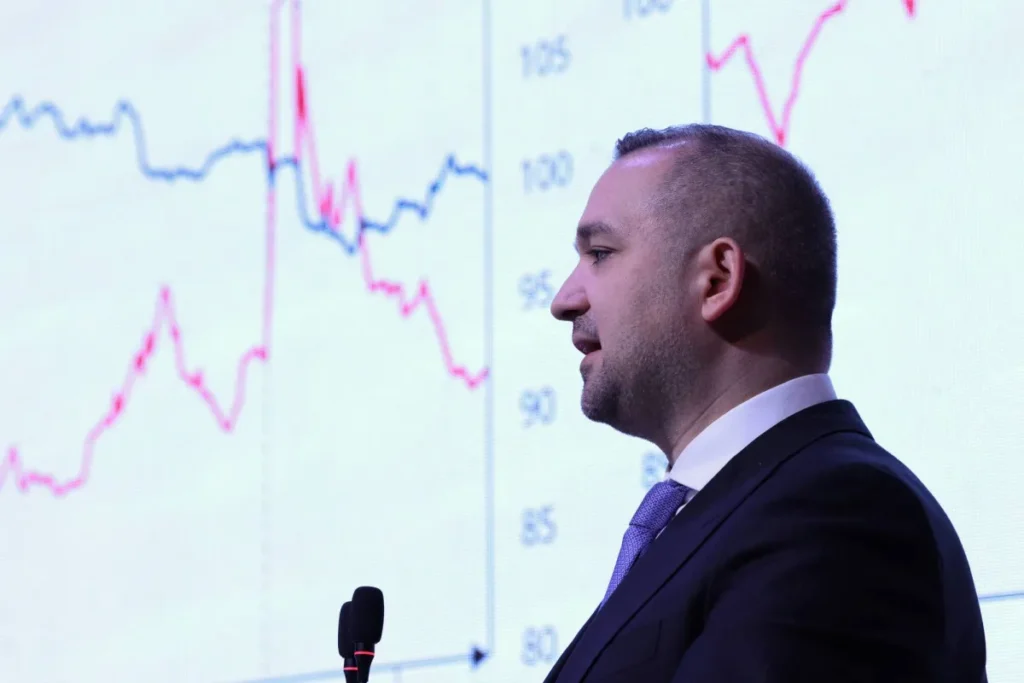Türkiye’s central bank left its year-end inflation forecast unchanged at 24% on Thursday but Governor Fatih Karahan said it is ready to tighten policy if inflation worsens, after having pivoted to raising interest rates last month.
Presenting the bank’s quarterly inflation report in Istanbul, Karahan said steps taken by the bank had hindered a serious deterioration in inflation expectations and that the fall in inflation would continue in the rest of 2025.
Last month, the bank tightened its policy rate by 350 basis points and set the lending rate at 49% in response to market turmoil that erupted in March over the arrest of Istanbul Mayor Ekrem Imamoglu, President Recep Tayyip Erdogan’s main political rival.
In Thursday’s report, the central bank kept its year-end inflation mid-point forecast at 24% while leaving its end-2026 projection unchanged at 12% and end-2027 inflation at 8%, Reuters reported.
The central bank commonly adjusts its end-year inflation forecast, and last left it unchanged in August last year.
The lira, which had weakened sharply after the mayor’s arrest, was at 38.85 against the dollar on Thursday as the inflation briefing continued – firmer than its close of 38.8835 on Wednesday.
“We will be always ready to tighten our monetary policy stance in case we foresee a significant and persistent deterioration in inflation,” Karahan said at the briefing.
He said the outlook shows that the tight stance in policy should continue and the bank will take necessary precautions if demand conditions impact the inflation outlook negatively.
Inflation risks are upward right now and the bank has the flexibility to set its funding rate above the policy rate with its tools, he said, noting that the recent tightening came when the bank was in a cutting cycle, so the impact would be higher.
Karahan added that a slowdown in economic growth would be more evident due to the tightening and this would support disinflation.
Before the latest rate hike, the central bank had begun an easing cycle and cut its policy rate to 42.5% as inflation fell from the level of more than 75% reached in May 2024.
The market turbulence triggered in March by Imamoglu’s arrest on corruption charges – which he denies – also drained central bank reserves and caused sharp foreign outflows, notably in the bond market.
But inflows have since resumed and the central bank returned to being a buyer of forex this month, purchasing billions of forex in a rebound after nearly two months of declines in which it had sold $57 billion since mid-March.



